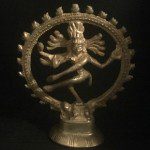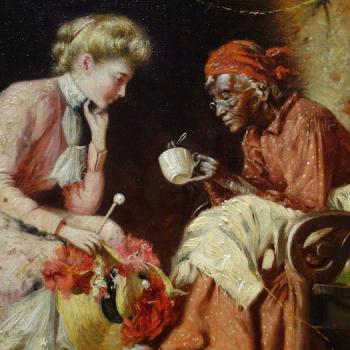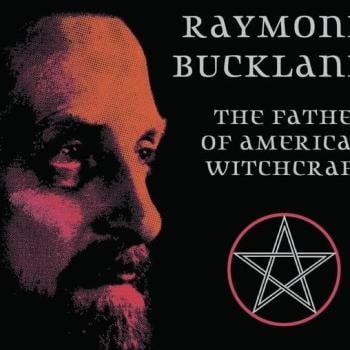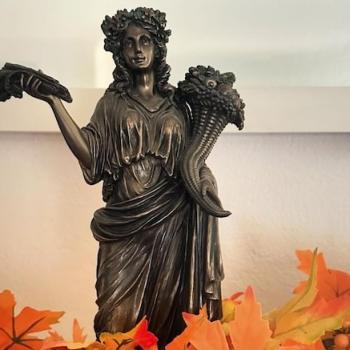 I’ve always had an odd relationship with the musical genre known as the blues. It’s the foundation of rock and roll (a truly American musical phenomenon), but I was first introduced to it via British bands. I discovered the blues through Led Zeppelin and Eric Clapton and my appreciation for the art form was filtered through that prism. Instead of going from Zeppelin to Howling Wolf I went from Zeppelin to Robert Johnson, content to skip decades of great music simply because Traveling Riverside Blues listed Johnson as a composer.
I’ve always had an odd relationship with the musical genre known as the blues. It’s the foundation of rock and roll (a truly American musical phenomenon), but I was first introduced to it via British bands. I discovered the blues through Led Zeppelin and Eric Clapton and my appreciation for the art form was filtered through that prism. Instead of going from Zeppelin to Howling Wolf I went from Zeppelin to Robert Johnson, content to skip decades of great music simply because Traveling Riverside Blues listed Johnson as a composer.
https://www.youtube.com/watch?v=d1JAhFAQigY
Led Zeppelin-Traveling Riverside Blues
I certainly missed a few things taking that route, but gods do I love old, real, Mississippi Delta Blues. When people hear the words “blues” today they often think of guitar gods and extended six-string solos and visions of Gibson Les Pauls dancing in their heads, but that wasn’t originally the case. The old Delta Blues of Robert Johnson were acoustic, and often lacked any sort of additional accompaniment (no bass, no drums) outside of a singing voice. When I was younger I found this stripped down version of the blues wonderfully exotic; sometimes less is truly more.
When I listen to an old scratchy blues recording from the 1920’s and 30’s I’m often taken in by the romance of it. Weary musicians hitch-hiking and train-hopping across the country from dirty old juke-joint to juke-joint . . . . . with men and women playing the blues because it’s real and vital and speaks to their experience. Of course some of that vision is real, guys like Robert Johnson did hitch-hike and stow away on trains, but like a lot of folks who enter the music industry they had visions of fortune, fame, and all the perks that go with it. Nobody back in 1934 dreamed about being a poor bluesman simply to keep it real.
Robert Johnson-Cross Road Blues
Listening to old blues always makes me feel like I’m close to something authentic, but like most things the blues were 50% organic inspiration and 50% commercial calculation. The blues evolved from a whole host of African-American musics: field hollers, prison songs, and spirituals; but it was commercial musician, W.C. Handy, who introduced the blues to a nation-wide audience. Handy didn’t grow up with the blues, he heard his first twelve bar blues in a bus station:
“A lean, loose-jointed Negro had commenced plunking a guitar beside me while I slept. His clothers were rags; his feet peeped out of his shoes. His face had on it some of the sadness of the ages. As he played, he pressed a knife on the strings of the guitar in a manner popularaized by Hawaiian guitarists who used steel bars. The effect was unforgettable. His song too, struck me instantly.
‘Goin where the Southern cross’ the Dog.’
The singer repeated the line three times, accompanying himself on the guitar with the weirdest music I had ever heard. (1)”
It feels strange to associate the blues with “commercial music” but much of its wide spread appeal can certainly be attributed to musicians like Handy and Ma Rainey. Perhaps even more so than Handy, Rainey was the first to spread the gospel of the blues to all of North America. Rainey attached and identified herself with the genre like no else in the early days of the blues. Nearly all of her songs contain “blues” somewhere in the title: Booze and Blues, Jealous Hearted Blues, See See Rider Blues, Farewell Daddy Blues, Louisiana Hoodoo Blues, Sissy Blues, Cell Bound Blues . . . . . it’s easy to get the picture.
Ma Rainey-Booze and Blues
Listening to Rainey is a different experience than listening to Johnson, the guitar sounds are similar, as are the vocals, but there’s a bit of extra instrumentation. The horns and piano are louder than the guitar in several places, Johnson would never even get the chance to add extra instruments to his version of the blues. In addition to the extra sounds Rainey was able to incorporate into her early blues (she recorded about fifteen years before Johnson), her reputation has never been as sinister. For instance she’s never been accused of standing at the crossroads . . . . . . Rainey may have helped invent the blues, but Johnson stands tall as a pivotal figure, largely in part because of a legend that’s nearly as strong as his music.
Johnson might be more well known for standing at the crossroads and “selling his soul to the devil” than he is for his music. I’m happy that the myth of Johnson has allowed his music to survive and thrive eighty years after the fact, but I find it tragic that people are more likely to talk about his alleged “evil doings” than his influence on modern music. One of the biggest ironies about Johnson’s “deal with the Devil” is that it’s unlikely he ever made such a claim (and I’m a firm believer that he did not). Even if he never sold his soul, there are moments where his music dances along the edges of such an idea. In Me and the Devil Blues he sings of Satan knocking at his door with Johnson answering with a cheerful: “Hello Satan, I believe it’s time to go.” In the song, Satan comes across more as an “evil spirit” than the Prince of Darkness, but words have power. Other songs which contributed to the image of Johnson dancing with the devil were the road-weary Hellhound on my Trail and Cross Road Blues.
Robert Johnson-Me and the Devil Blues
The crossroads myth is an essential element to the magic and mystery of the blues, and it may have been a little more than just myth. There are lots of crossroads tales, and all of them are pretty similar. A solitary figure straps a guitar to his back and wanders to the crossroads just a little ways outside of town. There he’s usually met by a “big black man” or sometimes a “black dog,” and only rarely is the figure met there addressed as “The Devil,” and that’s probably due to outside (white-person) influences. Deals are made and guitars are tuned, though it’s never quite explained in the stories involving the “black dog” if paws are used in the guitar tuning process. In a few stories sacrifices are made, perhaps a chicken or three, and in one tale a “blind rooster” was used, but all sorts of cultures have engaged in animal sacrifice over the years. There’s no judgement here, and I’d happily kill a chicken today to play guitar like Robert Johnson or Jimmy Page.
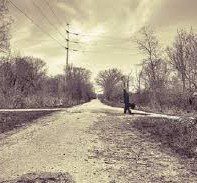 In 2014 accounts from the crossroads are generally looked at as fairy tales or ghost stories, but many of the folks who told them in early 20th Century America believed them to be real and literal experiences. For some, these are easy tales to dismiss, I’m firmly in the opposite camp and believe something magical did happen at those dusty intersections. I’m open to all kinds of interpretation here; perhaps they had an out of body experience, or a visitation of “power” or “energy” that felt like the presence of a deity or a powerful conjurer? In some ways the truth of an encounter matters far less than the belief in an encounter. If someone felt they had an experience at a crossroads maybe it provided the encouragement and self-confidence to really play that guitar and put some conviction in that voice.
In 2014 accounts from the crossroads are generally looked at as fairy tales or ghost stories, but many of the folks who told them in early 20th Century America believed them to be real and literal experiences. For some, these are easy tales to dismiss, I’m firmly in the opposite camp and believe something magical did happen at those dusty intersections. I’m open to all kinds of interpretation here; perhaps they had an out of body experience, or a visitation of “power” or “energy” that felt like the presence of a deity or a powerful conjurer? In some ways the truth of an encounter matters far less than the belief in an encounter. If someone felt they had an experience at a crossroads maybe it provided the encouragement and self-confidence to really play that guitar and put some conviction in that voice.
The crossroads myth was certainly not an invention of the early 20th Century, it’s an ancient tale and most likely pre-dates Jesus. Africa has a long tradition of crossroads deities, gods like Egba and Eshu who open the way for new possibilities and teach wisdom. As African Religion changed and morphed in the New World, it’s not surprising that details were forgotten. Religion becomes superstition, superstition finds new life as magic, and an almost forgotten secret becomes reinvented into something that becomes useful again. “The Black Man” waiting at the crossroads wasn’t the Devil it was a far older African god, this time alive in a new land on a distant shore.
It’s easy to forget how important magic was in the African-American experience in the early 20th Century. Hoodoo wasn’t just a term confused with voodoo, it was a valuable and tangible magical path that produced real results. People believed in it whole-heartedly. Robert Johnson sang of it in some of his greatest songs. Come On In My Kitchen has Robert singing about his girlfriend’s nation sack (or mojo bag) and the consequences that come from taking something out of it. Hot Foot Powder, which also shows up in Kitchen, sounds like a gag gift today, but in the 1920’s it was a real magic powder said to rid one of bad neighbors, or to cause an ex-lover to be forever unsatisfied. (Today there are still people who swear by it.) That was all in the music, and was sung about plainly and as a matter of fact, because to many at the time it was.
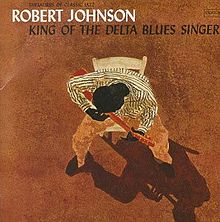 Johnson’s legacy has made him a far bigger star in death than he ever was in life. Before his untimely passing at the age of 27 (back in 1938) he had recorded only 29 songs, with several alternate recordings of those tunes adding up to 41 tracks in all. Johnson’s recorded work consists entirely of his acoustic guitar and his haunting voice; no overdubs, no edits, and no backing band. Johnson had a minor hit with the song Terraplane Blues in 1937, and by minor hit I mean minor, it sold only 5000 copies. Johnson died after most likely being poisoned in a juke-joint by the husband of a jealous lover. His death wasn’t in the headlines and it took months for word of his demise to travel. He only reached legendary status in the early 1960’s when British kids started listening to old American Blues and Columbia records attempted to cash in by releasing The King of the Delta Blues Singers a compilation featuring 16 Robert Johnson songs.
Johnson’s legacy has made him a far bigger star in death than he ever was in life. Before his untimely passing at the age of 27 (back in 1938) he had recorded only 29 songs, with several alternate recordings of those tunes adding up to 41 tracks in all. Johnson’s recorded work consists entirely of his acoustic guitar and his haunting voice; no overdubs, no edits, and no backing band. Johnson had a minor hit with the song Terraplane Blues in 1937, and by minor hit I mean minor, it sold only 5000 copies. Johnson died after most likely being poisoned in a juke-joint by the husband of a jealous lover. His death wasn’t in the headlines and it took months for word of his demise to travel. He only reached legendary status in the early 1960’s when British kids started listening to old American Blues and Columbia records attempted to cash in by releasing The King of the Delta Blues Singers a compilation featuring 16 Robert Johnson songs.
Even if Robert Johnson wasn’t really The King of the Delta Blues as his label claimed, he was a damned talented musician and song-writer. He was a phenomenal guitar player, and there are instances in his rather limited recorded legacy where it sounds like he’s playing rhythm and lead guitar simultaneously. Amazing, and some would say spooky, in a time before studio overdubs. (The idea that Johnson played with a few demons has been theorized a time or two.) Johnson’s sense of of melody is also a wonder. The chorus to Love in Vain is infectious, and stands only a stone’s throw away from rock and roll. Johnson’s influence on rock is hard to miss too. Clapton, The Rolling Stones, Led Zeppelin, The Yardbirds . . . they all owe him a giant debt of gratitude, and if he had lived longer, a hell of a lot of song royalties.
Robert Johnson-Love in Vain Blues (Takes One and Two)
The Delta Blues conjures up a world that’s much like our own. It’s full of magic, mystery, and the unknown. It’s unlikely that Johnson made any lasting pact with Papa Legba, but the thought of it all has always been so tantalizing that it keeps Johnson’s music in the spotlight.
1. Escaping the Blues: Robert Johnson and the Invention of the Blues by Elijah Wald, HarperCollins Publishers, 2004. page 8



